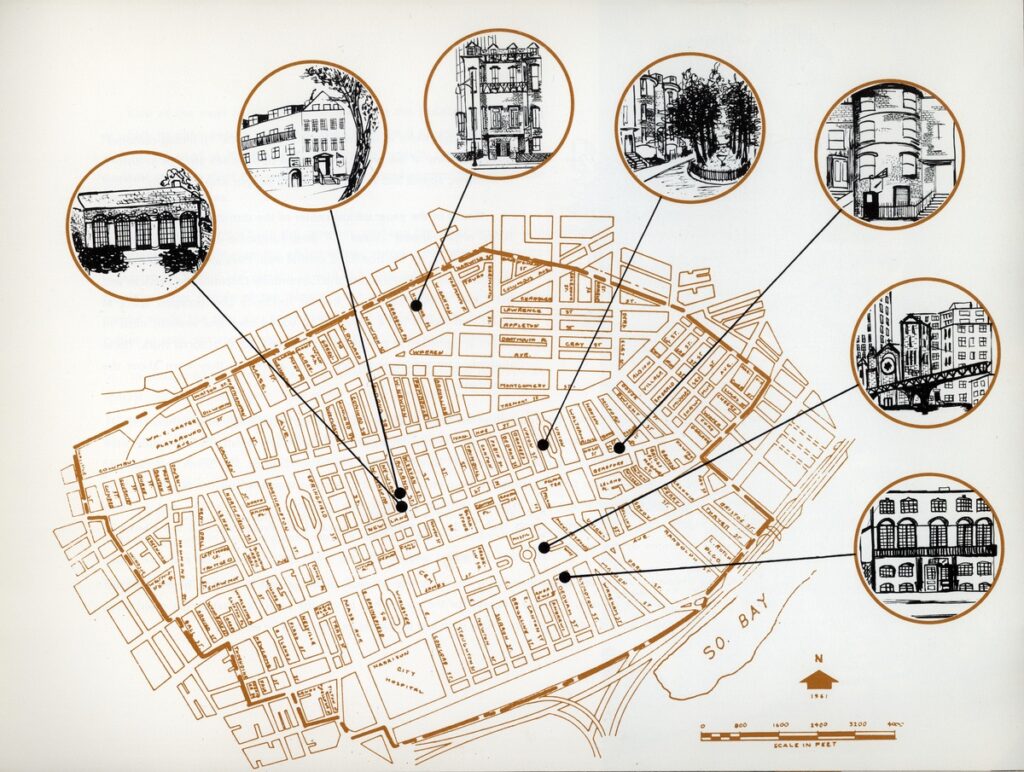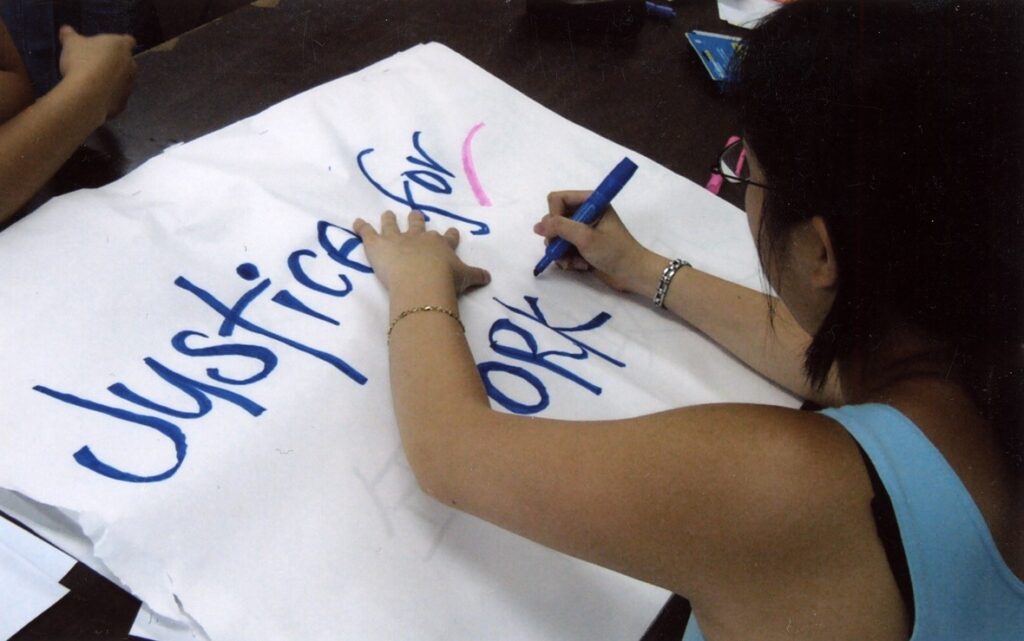History of the BRC
Phase I
In 2018, the Northeastern University Library’s Digital Scholarship Group led an intensive preliminary planning and design process for the Boston Research Center. The goal was to create a model research center, focused on the city of Boston, to perform deeply integrative studies of urban history, communities, systems, and culture. Generously funded by a planning grant from the Andrew W. Mellon Foundation, this first phase involved the development of prototype projects, design plans, and technical specifications to capture the suite of tools, data, and staff needed for Boston-focused research projects on campus. This process helped us gain a clear understanding of how the BRC could best fit into the campus and city research environments.
Image courtesy of Northeastern University Archives.
Phase II
In 2019, the BRC team used information from the first prototyping phase as a foundation and, via the University Archives and Special Collections, began to develop partnerships with a cohort of Boston-area organizations. Our goal is to co-create working systems that focus on the needs of community historians. These collaborations allow the BRC to develop systems and resources that serve both campus researchers and Boston-area community organizations. This two-year process of community software development is also generously funded by an implementation grant from the Andrew W. Mellon Foundation.
The goal of the BRC’s second phase is to provide a physical and digital research environment that draws together archival materials, civic data sets, linked data resources, and standard reference frameworks. We plan to do this by combining complex historical materials with current big data techniques. In contrast with research efforts more narrowly focused on numeric datasets, the BRC seeks to integrate and connect research collections of images, maps, texts, audio and video files, as well as spatial and statistical data collections.


